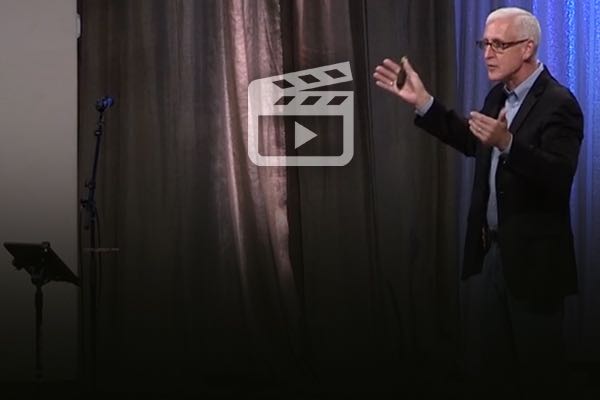Everyone, it seems, is on a quest for wisdom. Bookstore shelves overflow with self-help guides, and “wisdom literature” has been a mainstay of religious tradition for centuries. The allure of wisdom is universal, crossing the boundaries between the devout and the secular. We are drawn to any promise of insight, eager to possess this prized quality. Yet, for all our enthusiasm, we often blur the line between wisdom and knowledge. Dictionaries sometimes define wisdom as “accumulated learning” or “scholarly knowledge,” but if that were all wisdom entailed, why not simply call it “knowledge”? Clearly, wisdom hints at something deeper, something richer.
Some have turned to science to clarify the mystery. Igor Grossmann, a psychology professor and director of the Wisdom and Culture Lab at the University of Waterloo, assembled a team of behavioral and social scientists to see if a scientific consensus on wisdom’s nature could be reached. Their findings? “Moral aspiration” emerged as one of the two central pillars of wisdom. In other words, these scientists—echoing the conclusions of countless philosophers—regarded wisdom as inseparable from morality.
Consider this: Is it possible to murder wisely? Or is murder, by its very nature, always unwise because it is immoral? The answer points us to a crucial truth: wisdom is not just about cleverness or intellect; it is bound up with moral goodness. But this realization complicates matters. If wisdom is defined by moral virtue, who decides what counts as “good”? Science excels at describing what is, but it cannot dictate what ought to be. David Hume recognized this centuries ago, observing that no amount of empirical observation can bridge the gap between facts and values.
So, where do we turn for moral direction if science cannot provide it? Can individuals simply decide for themselves what is good or evil? In a culture where truth is increasingly seen as subjective—shaped by personal experience and opinion—it is tempting to imagine that each person is the ultimate authority on moral truth. But this idea quickly unravels. Imagine a murderer declaring his act virtuous; his personal conviction cannot make the immoral moral. The wrongness of murder is not erased by the killer’s belief. So, where do we turn for moral direction if science cannot provide it? Can individuals simply decide for themselves what is good or evil? Share on X
Perhaps, then, morality is decided by the majority. If the people of California outlaw murder, does that make murder wrong? And if they were to change the law, would murder become acceptable? Clearly not. The moral status of murder does not hinge on the shifting preferences of society. The killing of an innocent person is objectively wrong, regardless of individual or collective opinion.
If wisdom is, as philosophers, theologians, and now even scientists agree, “morally grounded,” then it must rest on an objective, transcendent foundation. If moral truth is merely a matter of personal or popular opinion, then wisdom itself becomes negotiable, and even the most heinous acts could be called wise under the right circumstances. But this is not what we mean by wisdom.
This need for an objective moral anchor explains why the ancient Christian worldview offers a more robust basis for wisdom than the relativism prevalent in our culture. Long before self-help books dominated bestseller lists, Christianity recognized the supreme value of wisdom. Scripture describes wisdom as more precious than gold, silver, or jewels. But the Bible goes further: it insists that wisdom is inseparable from moral virtue, what contemporary scientists now call “moral aspiration.” True wisdom, in the Christian view, is rooted in the one unchanging source of moral truth—God Himself. Wisdom, then, does not shift with the tides of public opinion or personal preference. It is as enduring as the character of God.
That is why the biblical writers could declare, “The fear of the Lord, that is wisdom, and to depart from evil is understanding.” True wisdom begins with acknowledging God as the unchanging moral authority and rejecting what He calls evil. Every wise choice is also a morally good choice, its virtue grounded in the character of God. As the New Testament puts it, “The wisdom that comes from heaven is first of all pure; then peace-loving, considerate, submissive, full of mercy and good fruit, impartial and sincere.”
Wisdom anchored in God’s nature is genuine, objective wisdom, because God is both all-knowing and all-good. As the apostle Paul wrote, “The foolishness of God is wiser than man’s wisdom, and the weakness of God is stronger than man’s strength.” Christianity not only affirms the value of wisdom, but also insists that it cannot be separated from moral virtue. Unlike human attempts to ground wisdom in shifting opinions, Christianity roots wisdom in the unchanging, reliable character of God Himself.
In the end, the pursuit of wisdom is not just a quest for cleverness or information, but a journey toward the moral heart of reality—toward the God in whom true wisdom is found.
To learn much more about our desire for wisdom and how this desire both contributes to human flourishing and establishes the reliability of the Biblical record, please read The Truth in True Crime: What Investigating Death Teaches Us About the Meaning of Life.






















